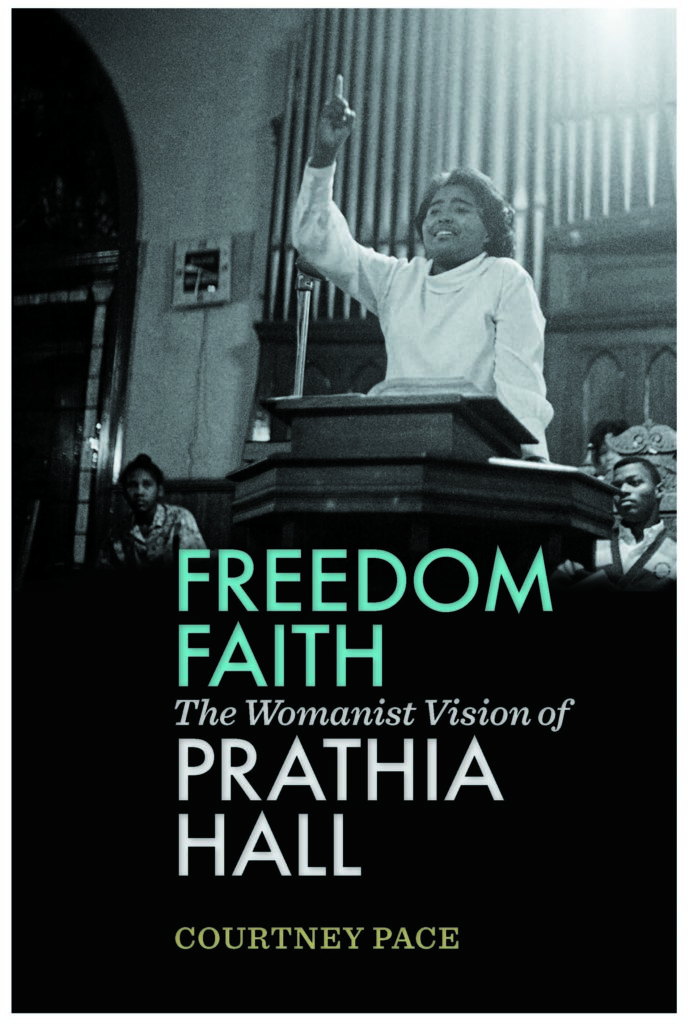Raised as a Southern Baptist in Texas, Dr. Courtney Pace found herself nurtured in faith and sensing a call to ministry within a tradition that did not affirm her calling. “Though I had excelled academically, had nearly ten years of ministry experience, and written Christian education curriculum, I faced significant resistance ranging from microaggressions to outright misogyny,” Pace says.
In graduate school, Pace sought a dissertation topic that would allow her to explore the intersections of race and gender. “Homiletician Tom Long suggested Rev. Dr. Prathia Hall as a potential research focus based on her civil rights activism. I was instantly drawn to her, beyond what I could fully understand at the time.”

Pace’s upcoming book, Freedom Faith: The Womanist Vision of Prathia Hall will be published this month by University of Georgia Press and will be the first full-length critical study of Rev. Dr. Prathia Hall, who Pace describes as an “undersung” leader in both the civil rights movement and African American theology.
“Although Movement scholarship has tried to address the relative silence on women in the Movement,” Pace says, “most narratives of the Movement revolve around its male leaders, and literature on religious leaders in the Movement is no different.”
In addition to Hall’s involvement with the Student Nonviolent Coordinating Committee, Hall became a highly significant Baptist minister and one of the first women ordained in the American Baptist Churches, USA.
“Prathia Hall was a religious leader of the Movement in her own right,” Pace says, “and her story sheds light on the important role that female religious and community leaders played in the Movement, and in American history more broadly. This work also seeks to restore Hall to her rightful place at the center of any study of the Movement or of American religious history.”

Freedom Faith focuses on Hall’s intellectual and theological development and her influence on such figures as Rev. Dr. Martin Luther King Jr., Marian Wright Edelman, and the early generations of womanist scholars.Pace says Freedom Faith takes its title from the central concept of Hall’s theology: the belief that God created humans to be free and assists and equips those who work for freedom.
